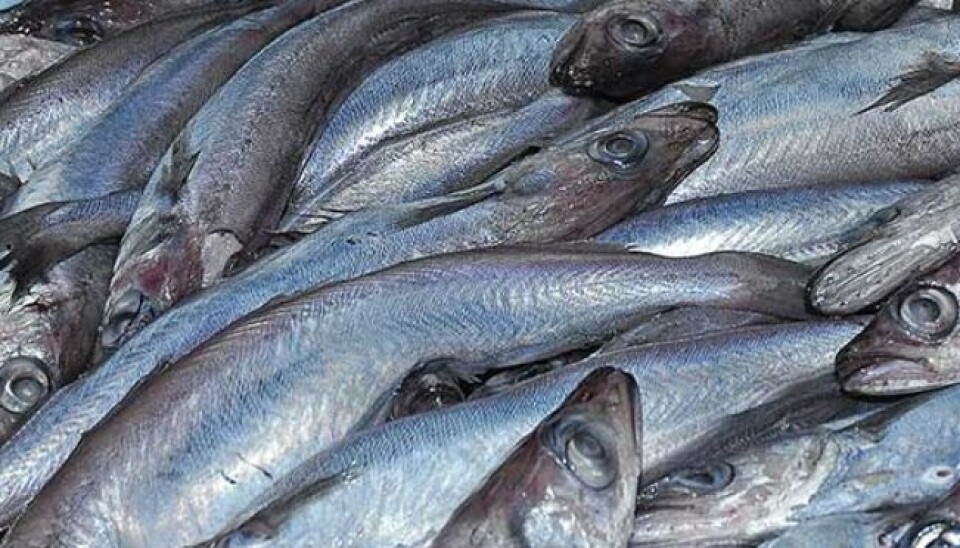
Fish feed makers call for science-based quotas for 'under pressure' whiting
Feed manufacturers Cargill, BioMar and Skretting, and salmon farmer Mowi, which makes its own feed, have called for European coastal nations to agree science-based catch quotas for blue whiting, an important species for aquaculture.
In a joint statement, the companies said the last time the coastal nations agreed a blue whiting quota within the scientific recommendations was in 2014.
They said they were not aware of a mechanism to re-open negotiations between the regulators of the coastal nations before quotas are again decided towards the end of 2021.
“That will be too late for the stocks, which are already under pressure. Pre-emptive action must be taken to ensure regulators’ agreement, not just for the coming year, but for the long term,” they stated.
Unsustainable management
“We call on the fishers and the processors of the catch to see the threat unsustainable management brings to them and their livelihoods. We appeal to them to also encourage the regulators to comply to scientific recommendations for their own long-term success.”
The joint statement follows the launch by the European Commission of its Green Deal, with a Farm to Fork Strategy highlighting the need to shift to sustainable fish production.
“We expect this to become a strong incentive for the regulators of the coastal nations to set quotas for fisheries in Europe that are within scientific recommendations,” said the feed makers.
“Setting quotas within scientific advice is a key part in sustainable management of fisheries. Without agreement on this among regulators, these key fisheries cannot be sustainably managed, and Europe will be failing on its ocean stewardship.
“Agreement on quotas among regulators of the coastal nations within scientific recommendations is of paramount importance to manage stocks sustainably. Blue whiting is one of the species affected by not having quotas set within scientific recommendations. This is an important species for aquaculture, producing high quality fishmeal and oil, but the last time the coastal nations agreed the quota within the scientific recommendations was in 2014. Similar gaps are seen for Atlantic mackerel and Atlantic herring (last agreed in 2009 and 2012 respectively).
“The European aquaculture sector works hard to develop sustainably – with a key focus on the raw materials of the feed. The major feed companies in Norway and Scotland have all made public commitments to sustainable sourcing of raw materials, especially those of marine origins.
Negotiation table
“Several of them are engaged in projects in developing nations to implement fishery improvement projects, to develop sustainable management approaches. Fisheries in the Americas and Asia have stepped up their efforts to manage their stocks sustainably and European nations should also go in the same direction.
“The aquaculture feed companies BioMar, Cargill, Mowi and Skretting call on the fishing sector and particularly the regulators in the coastal nations who set the quotas to come back to the negotiation table and agree on a quota sharing structure in line with scientific recommendations.
“Aligning quotas with the scientific consensus also has the added value of proactively ensuring the future viability of fisheries. We shouldn’t need a reminder of the economic importance of avoiding fishery collapse, which from recent memory has devastated local and regional coastal economies.”























































